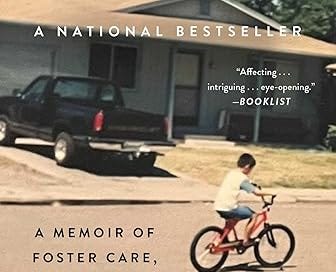The American Dream is a national ethos and narrative that spans many centuries. And there is certainly a lot to write about it. However, this post is not about the historical debate over whether or not the American Dream was/is out of reach for some because of slavery or other historical injustices. There is no reason to deny those detrimental events, but as I wrote elsewhere, I believe that the American Dream is overall a redemptive arc.
An excellent example of that redemption I recently discovered in Rob Henderson’s inspiring memoir, Troubled. It may seem strange to publish a memoir when you’re as young as he is, but the details of Henderson’s amazing story seem straight out of a movie—one which I hope someday gets produced.
If you’ve read many of my other posts and writings about the American Dream, you might think that I believe the American Dream is only about feel-good stories or just positive experiences. But in reality, the American Dream is more about stories of difficulty. It’s more about overcoming obstacles; it’s underdog stories, dealing with challenges with a sense of purpose, and having a north star for one’s life.
In his book, Henderson describes his own hero’s journey in search of the American Dream. He doesn’t mention the American Dream directly, but you can see his life’s experience in the definition of the American Dream by James Truslow Adams in his 1931 book The Epic of America:
[The American Dream] is that dream of a land in which life should be better and richer and fuller for every man and woman, with opportunity for each according to his ability or achievement . . . . It is not a dream of motor cars and high wages merely, but a dream of a social order in which each man and each woman shall be able to attain to the fullest stature of which they are innately capable, and be recognized by others for what they are, regardless of the fortuitous circumstances of birth or position.
Henderson’s life is interspersed throughout that definition in his own journey to reach his fullest human potential, despite many setbacks along the way. The part regarding potential for those despite lacking “fortuitous circumstances of birth” is very apt as Henderson was beset with challenges from birth: a neglectful, drug addicted mother who was deported back to Korea when he was just under three years old; being shuffled from home to home in the foster care system until settling into one that eventually became a broken family just a few years later.
Henderson goes into detail in many of these episodes—and in such full detail that you feel as though you’re there with him experiencing those life-influencing moments. Instead of trying to retell them here, I recommend that you buy the book and read the stories yourself, without me butchering any of them or compromising his very well-written narrative.
But suffice it to say, there were numerous factors that made Henderson face a dim future. He describes a life that was full of potential—but a potential that was not initially pursued because of the challenges along the way and a lack of guidance (or even self-confidence that he could do it). Deep down, it seems like Henderson knew of his capabilities, and he had a few people along the way who encouraged him, but there wasn’t any powerful motivational purpose to pursue developing them.
At the end of the day, Henderson slowly found his bearings after experiences in the military, applying to and getting into Yale, and then getting a PhD from Cambridge University. Along the way, he coined the popular term “luxury beliefs” that has helped to describe many episodes in the last few years of our social and political lives.
I don’t believe the author would say there was a single defining moment in which motivation was suddenly activated and he instantly became a different person. It was more about improving and finding his way slowly but surely through good and bad experiences. And in that sense, his story is a very human and relatable story that many people who are currently trying to fulfill their potential would find value in reading.
The whole point of the book is not to engender sympathy for Henderson or his personal story but to provide hope and help to others who are going through similar circumstances. It is to encourage readers to find their own personal path, to achieve their own fullest human potential, and to discover how to use their innate gifts and capabilities to improve themselves and help those around them. This applies to somewhere between 350,000 and 400,000 kids who are currently in foster care like he was. But it also applies to many others who are part of unstable family environments, are struggling with some sort of addiction, or are just not finding their meaning and purpose in life.
I highly recommend this book, and, if you read it, I think you too will discover how just like this Substack, Rob is just living the dream.




